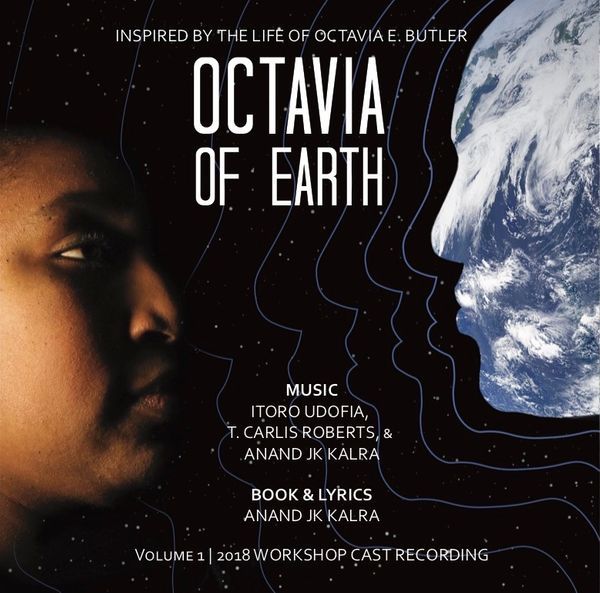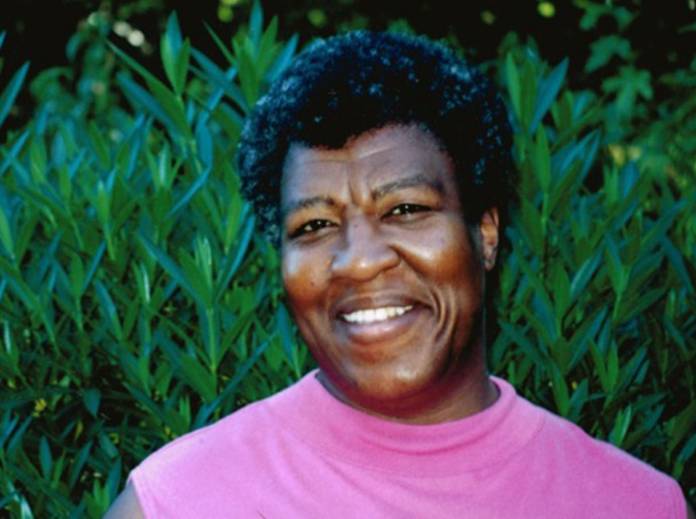Octavia E. Butler (1947-2006) was a visionary artist. Since the publication of her first novel, Patternmaster, in 1976, millions of people have read her words. Countless artists and activists—including Janelle Monae, Gloria Steinem, and Viola Davis—have taken inspiration from the worlds of her imagination.
But the accolades Butler received during her lifetime, her growing popularity in the aftermath of her death, and the privacy she maintained while she was alive have created a conundrum for those of us curious about the woman behind the legend. The enduring image of who Butler was as a person has blurred into a larger-than-life projection of whom we want her to be—a prophet (she wrote about a zealot elected to “make America great again” long before Trump), a sage, a poster child for feminism or Black power or nerds everywhere, an extra-human sibilant transfixed by futures only she could see.
The truth, of course, is more complicated. When I first entered the archives in Los Angeles that hold her papers, researching for what would become a musical of her life called Octavia of Earth, I joked to my co-conspirator T. that Butler seemed like the kind of person who would show up to a drum circle, play the same rhythm on a set of jingle bells for an hour, say nothing, and then leave.

Yet my first glimpse into her teenage diary placed all my preconceptions through the shredder. Here was someone deeply grounded in her experience of the world, who paid attention to the news and the writing on the wall alike and synthesized them all together to create new knowledge with layers and layers of depth.
Here was someone who had unrequited teenage crushes and felt awkward as hell, who dared to want to be something as outlandish as a writer in a working-class Black family where her mother and uncles served the wealthiest of Pasadena in plantation-style homes.
Here was someone who struggled with doubt, wage labor, barriers to accessing healthcare, the relentless cycles of oppression, making humiliating mistakes—the full catastrophe of life. Here was someone who made her way through a world built for people who were not like her and yet who persisted.
Here was someone entirely human in her magnificence.
Today, passages from Butler’s apocalyptic Parable series are indistinguishable from the morning news. In this moment of two-dimensional villains and saviors in the 30-second news cycle, we must fight to add nuance to our understanding of the world and its people, to listen for depth. We must tear down the statues of our oppressors and reimagine the pedestals beneath the feet of our heroes as mere sidewalks. We must walk arm-in-arm with our goddesses. We must listen to Black women, reflect, and act—not expect them to be superhumans who save the world for everyone else.
Fourteen years after her death, Octavia E. Butler’s best-known quotes may be those about the infinite nature of change, but the one that haunts me is about stagnation: “I think people can do better. I just don’t think we will.” May this prophecy be the one to prove Butler’s humanity once and for all. May she be wrong.
 Anand Jay Kalra is the founding director of Oakland-based Uncaged Librarian Productions (ULP). From 2016 – 2018, ULP produced Octavia of Earth, Vol. 1, an original musical inspired by the life of science fiction writer Octavia E. Butler. The soundtrack album is available on CD and mp3 at www.uncagedlibrarianmusic.com and was recently released to stream on Spotify, Apple Music, and all major platforms. Anand lives in Oakland with his cats, Sparrow and Finch.
Anand Jay Kalra is the founding director of Oakland-based Uncaged Librarian Productions (ULP). From 2016 – 2018, ULP produced Octavia of Earth, Vol. 1, an original musical inspired by the life of science fiction writer Octavia E. Butler. The soundtrack album is available on CD and mp3 at www.uncagedlibrarianmusic.com and was recently released to stream on Spotify, Apple Music, and all major platforms. Anand lives in Oakland with his cats, Sparrow and Finch.







